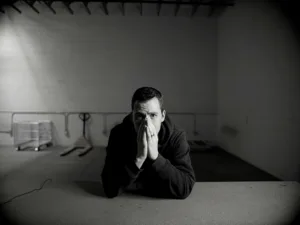If you’re one of the approximately 30,000 Denver families who welcomed a new baby in your life last year, congratulations!
A new baby brings all sorts of excitement, not to mention countless heartwarming and cuddly moments. At the same time, a new baby naturally comes with disruption. The all-consuming nature of caring for an infant means changes to your schedule, sleep, work and, most critically, your relationship.
You’re not alone if you’ve felt some of the closeness and connection slip between you and your partner after welcoming a new baby. In their 50-year research, Drs. John and Julie Gottman discovered that 67% of couples experienced a sharp decline in relationship satisfaction in the first three years of a baby’s life.
The transition from just partners to partners/parents can be difficult, but the good news is that, with intention and commitment, you truly can maintain a great relationship with your partner and keep your marriage strong and thriving while enjoying your new baby.
We asked Alexis Ward, LMFT and Denver Men’s Therapy couples therapist, for some tips for couples navigating new parenthood. Here’s what she had to say:
1. Invest in Time as a Couple
Pay for the babysitter and ask for support from family or trusted friends. However you get there, prioritize alone time for yourselves as a couple. Your relationship with your partner is important, and it needs time, space and energy devoted to its continual growth and development.
Read More: Date Night Ideas in the Denver Area
2. Make Co-Sleeping a Temporary Arrangement
Long-term co-sleeping can take a toll on the intimacy in your relationship. While co-sleeping may help you get more sleep or feel like you’re able to form a closer attachment with your baby, helping to make your baby comfortable in their crib will ultimately be a good choice for all of you. You can invest in a white noise machine or black-out curtains for your baby’s room to help soothe them and create a better sleep environment.
Pick a weekend when you don’t have much going on to make the transition. Be prepared to have your sleep disrupted for a few days, and be united and resolute as a team in getting this done. It is an important part of fostering your child’s independence and a vital part of protecting the sanctity of your intimate relationship. You can do this!
3. Lean Into Acknowledgment and Appreciation
Almost everyone feels overwhelmed, exhausted and unseen at moments as a parent. Many couples I work with are dealing with a sense of resentment towards one another that is rooted in a feeling that they are doing more than their partner and that their contributions are undervalued. Address this potential proactively by being very intentional about acknowledging each other’s contributions and expressing appreciation frequently. These little gestures will go a long way.
4. Reevaluate the Balance in Your Relationship Regularly
This goes hand in hand with number three. If either person truly is doing a great deal more than the other, no amount of acknowledgment will prevent a sense of resentment from setting in. Discuss how each of you feels about the fairness in your division of household and parenting tasks. Discuss it regularly and be willing to renegotiate if either party feels like the split is not equitable. Be objective and reasonable in your evaluation. Both parties need to leave this discussion feeling heard and understood. This gives your mind a piece of stable data to return to when feelings of resentment try to take hold.
5. Flirt and Show Affection
Stop and give your partner that long hug. Make space in your day to leave a sexy note. Be affectionate consistently throughout the course of the day. If you are just two ships in the night all day and then come to bed expecting a fiery romance, you’ll most likely be disappointed. Stoke that fire all day long with fun texts and little flirtations. It will build a natural chemistry that will pay dividends.
6. Look for Solutions Instead of Blame
When life gets hectic, it can be easy to get caught in a loop of blame and frustration. This pits you and your partner against one another rather than allowing you to look for solutions as a team. Bring your focus back to strategizing together as teammates, and learn how to apologize well.
7. Nurture Yourselves as Individuals
Almost everyone who has children struggles with a loss of their independent identity. You are now the caretaker of another living being, and it can be easy to gradually lose sight of who you are as an individual. Be intentional about carving out time to do the things that fill up your cup. Your partnership is the best resource for allowing you both to devote time to yourselves as individuals. Maybe you watch the kids while your partner goes to yoga in Denver. Then your partner watches the kids so you can have lunch with a friend. If you are drained and exhausted, events like date night will end up feeling flat instead of restorative, so make sure you are giving yourself permission to take care of yourself and supporting each other in practicing continual self-care.
When Is It Time to Seek Therapy?
The life change that comes with new parenthood is stressful. Sometimes it’s so overwhelming it’s hard to even follow sage relationship advice. A couples therapist in Denver can help you navigate through it. If you or your partner are experiencing these feelings or situations, it could be time to call in an expert:
- Depression. Postpartum depression can occur in both men and women even if you don’t have a history of depression, and a trained therapist can make an assessment.
- Preexisting mental health conditions. If either or both of you have preexisting mental health challenges, such as depression, anxiety or bipolar disorder, you will want to pay close attention to your stress levels and mood. Stress and sleep deprivation can quickly exacerbate underlying mental health issues.
- Substance abuse. The pressures of being a new parent often lead to all sorts of escapism. If your form of escape is abusing alcohol or drugs, seek help now. A therapist can equip you with healthy tools to return to equanimity when things get overwhelming.
- Infidelity and other forms of betrayal. Changes in hormones, lack of sleep, and adjustment to parenthood can all lead to shifts in a couple’s sex life. Sometimes the disconnection during this delicate time requires a therapist who can play a vital role in helping you reconnect.
- Deep resentment. If you came into parenthood with a heap of tension and unresolved hurt in your relationship, you might need the help of a therapist to work through past issues and get onto the same page.
- Unhealthy conflict resolution. A therapist could be helpful in offering you some conflict resolution skills for more productive conversations.
- Self-harm, domestic violence or violence of any kind. If either of you is having suicidal thoughts, it’s time to seek individual therapy immediately. Couples’ work may come into the equation, but individual therapy is generally the best environment to open up about these feelings.














